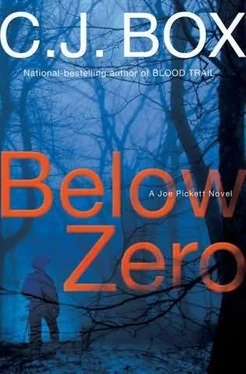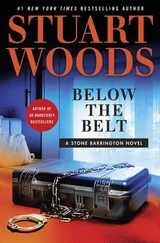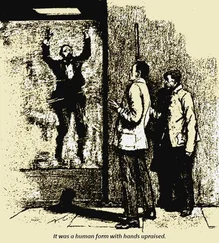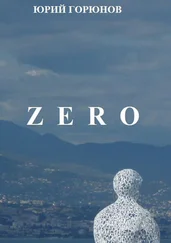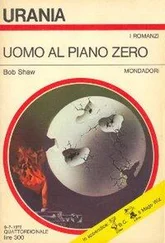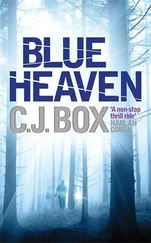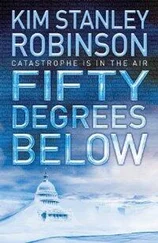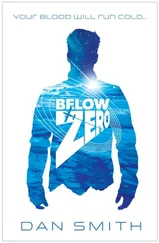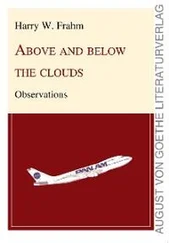Joe barely heard the last part of the sentence. He was recalling what Marybeth had asked him about Nate, and how he’d assured her Nate would be just fine. But would Nate, being Nate, seek sanctuary so he could hole up? Or would he…
Joe said, “Give me your cell phone. I might know how to find them.”
South of Devils Tower
EARLIER THAT AFTERNOON, AS THE THUMPING BASS BEAT OF the FBI helicopter faded away into the sky miles behind him, Nate Romanowski crossed a shallow creek and saw that someone had been there before him.
He was halfway across the creek, hopping from one exposed river rock to another to keep his boots dry, when he noticed that the side of the basketball-sized rock he was about to step on was glistening with moisture. It had been splashed as if someone had stepped on it, slid off, and wetted it. He paused and looked carefully downstream and up the creek. The water was cold and clear if not more than four inches deep, and there were sandy pockets downstream from the cluster of river rocks he was using to cross. The creek was perfect habitat for brook trout. He should have seen them shooting from the sandy pockets to the shadows like small dark comets as he loomed above them. But there were no fish to be seen. Which meant someone had already spooked them.
And in the mud on the far bank was a fresh footprint with chocolate-colored water swirling in the depression of a half-moon-shaped heel.
He bent down and studied it. The shoe that had made the print had a smooth sole and a squared-off toe. Not cowboy boots or Vibram hikers. A city shoe.
He stood up and rubbed his chin.
His intention before seeing the footprint was to continue down the creek until it joined a stream and to follow that stream to Sundance. He had an old friend in Sundance, a falconer and Special Forces operative he’d not seen in years but who would take him in.
But when he thought about it, and he looked at the moisture on the rock and the city shoe print in the mud, he changed his mind and his destination. And he checked the loads in his.454 Casull.
ONCE HE WAS ON THEM, their tracks became more glaring. Aspen leaves covering the trail were crushed into the ground by the prints, and spider’s webs that had been spun knee high had been breached and halved so that the threads seemed to reach across the opening in an effort to rejoin. There were two men ahead of him, all right. They were taking an old game trail south, mashing old and new deer tracks and mountain lion tracks. Different shoes; the square-toed hipster shoe that had left the track on the creek bank and a more traditional businessman’s shoe-worn heels, a rounded toe-that sank deeper into the ground because the wearer was heavier. The businessman’s stride was inconsistent, the right foot flaring off the game trail with regularity, while the square-toed shoe proceeded relentlessly down the middle of the trail.
Stenko and Robert.
As he tracked them and observed their path, Nate paused often to stop and listen. They weren’t that far ahead of him. But he heard no voices or sounds.
The tracks stopped at a rusted three-strand barbed-wire fence stapled to gnarled pitch wood posts. On the base of the nearest post there was a collection of old C-shaped staples on the ground in the grass, indicating that they’d stepped on the wires like stairs to climb over the barrier, but weight-probably Stenko’s-had overburdened the staples and popped them out. Because the wires were now free, it was easy to press them down and throw a leg over and continue.
The boughs of the old-growth pine trees closed over his head, and he walked in shadow. Following their trail was easy now, as the forest floor was carpeted with dry yellowed pine needles that had scattered on the periphery of every footfall.
Ahead, less than a quarter mile, sunlight poured through the trees. There was an opening.
The afternoon suddenly filled with the sharp barking of dogs. Nate dropped to his haunches. The eruption of barks echoed through the timber and originated a quarter mile or so ahead of him. Nate imagined the scenario: Stenko and Robert had just broken from the trees and were approaching a ranch house. Most ranches had a small pack of dogs roaming the premises whose purpose was to alert the rancher to the appearance of strangers.
THROUGH THE SCOPE of his.454, Nate watched the proceedings. He was looking for a good shot.
The ranch itself was ancient. Front and center was an unpainted clapboard house with shutters and shake shingles on the roof so weathered they were the color of concrete. There were several dark and sagging outbuildings to the side of the main house and a post-and-rail corral. In the corral near the barn three steers and a swaybacked blue roan grazed on haphazard piles of hay. The barn on the grounds sagged as well, and what little white paint remained on it curled from the siding like dried worms. The dogs he had heard barking all sat in front of the ripped screen door on a porch, looking at the opening as if awaiting someone to open it and throw food to them. He could see no human activity.
Next to the barn, in sharp contrast to the buildings, was a new-model black Ford F-350 pickup crew cab.
He thought: Stenko and Robert are inside with whoever lives here. And like all ranchers, no matter the circumstances, the owner drove a state-of-the-art pickup truck. Priorities.
THE DOGS backpedaled comically as the screen door was pushed out, clearing the way for whoever was inside to exit. Nate thumbed back the hammer on his revolver and squinted through the scope.
The first person he saw was an older bald man in his sixties or seventies wearing a pearl-snap-button yellow shirt, suspenders, and worn Wranglers. The man was unshaven and bespectacled in yellowed horn-rimmed glasses. His bald head was paper white on top and there was a clear line mid-forehead where his absent hat shielded the sun, while the rest of his face and neck were nut-brown. He held his hands out in front of him like he didn’t know where they should go.
Nate swiveled his weapon slightly to the right and his scope filled with the handsome, square-jawed face of Robert Stenson, who was immediately behind the rancher. But as he swept his weapon, he saw the pistol Robert held and the muzzle of it was pressed into the back of the neck of the rancher as he guided him outside. Nate’s finger tightened on the trigger but the rancher stopped on the porch and backed up into the crosshairs.
“Shit,” Nate whispered to himself.
The rancher was saying something over his shoulder to Robert. Nate peered above the scope. He couldn’t hear what the discussion was about, but he knew it was an argument. Without the aid of the telescopic site, he could see that Robert and the rancher were nose to nose, yapping.
“Step aside,” Nate whispered to the rancher. “Give me a clean shot and I’ll lend you money for paint.”
But the rancher kept it up until Robert closed in and lowered his gun and shoved the rancher ahead of him toward the pickup. Immediately behind them, an older man appeared in the doorway: Stenko.
Nate rotated his weapon again and peered through the scope. For a moment, the crosshairs kissed Stenko’s forehead. Until he ducked and Nate could see only the shadowed interior of the ranch house.
Again, Nate sat back and glared.
Stenko was doubled over, both hands on his belly. Nate could hear him moan. Despite that, Robert pushed the old rancher toward the pickup, staying so close behind him they looked like their belts were fastened together. Whatever dispute they had was over. Robert was in charge.
The two of them were now blocked by the pickup. Nate heard the door open and saw Robert push the rancher into the cab. Stenko was right behind them, still bent over, and he vanished into the back seat of the cab before Nate could fire.
Читать дальше
